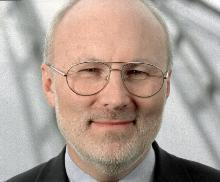Topic of Heuer-Dialog: Urban leisure facilities
Munich/Hamburg (October 6, 2006). Leisure facilities in cities can be a curse or a blessing. Carl-Otto Wenzel, Chairman of Wenzel Consulting AG, has seen many stars rise and fall in his more than 30 years as a consultant. In a fast-growing leisure society, urban building projects conceived for the long term should be thought out well in order to be adaptable to new trends. Those who want to make money with this need to be able to share visions. This is true for investors as well as for hoteliers. "Urban leisure facilities under the microscope" is one of the topics at the leisure facility congress organised by Heuer-Dialog on 25th and 26th October in Munich.
Carl-Otto Wenzel, who is regarded as one of the leading consultants in the leisure industry, quickly gets to the crux of urban leisure facilities: "Such facilities have to provide the real mix, as they comprise a lot of elements that have been growing together naturally in neighbouring quarters over many decades." Large elements such as the planned Elbphilharmonie in Hamburg's new Hafen City quarter retain a "highlight" function surpassing the city borders by far when it comes to such projects. Smaller leisure facilities like a science centre or a planetarium attract people only from the surrounding area.
 |
| Carl-Otto Wenzel |
"Leisure facilities become a curse when they are too big compared to the demand," says Wenzel. "In addition, a false location can be fatal of course. The same goes for ruthless imitation of ideas that already exist." The Germans are world champions in stealing ideas from one another, says the consultant with a smile. This was partly the fault of local politicians that wanted to make their mark without taking a risk.
Financing models such as private public partnerships were still far too seldom. And private patronage as is commonly practised in the US was still the exception here. When it comes to financing, creativity is in high demand. "The cities are increasingly taking part in raising the quality of life of their citizens and creating jobs, of course. But the cities only support leisure facility projects as long as they do not mean additional costs," he sees in perspective. Theoretically, a city could hand over the operation of a leisure facility into professional hands - if there were enough of them: Wenzel estimates that there are five professional operators in the whole of Europe.
And how can people be introduced to new urban leisure facilities? Carl-Otto Wenzel has some clear answers: "Through permanent PR that is almost aggressive and that makes each step of the building project transparent while allowing everyone to join in the discussion; through conducting events at the (future) location that become an attraction as early as during the planning and construction phase."
The image gain will mainly help the investors: in Hamburg's Hafen City, the dwellings have already been sold even before they are finished. "Such effectiveness with respect to the profitability of real estate is a sensation in Germany today."
Details about the experts' congress on leisure facilities can be found on the Internet at www.heuer-dialog.de . / map
To print this article you have to be registered and logged in for newsletter, visitor or subscription.





